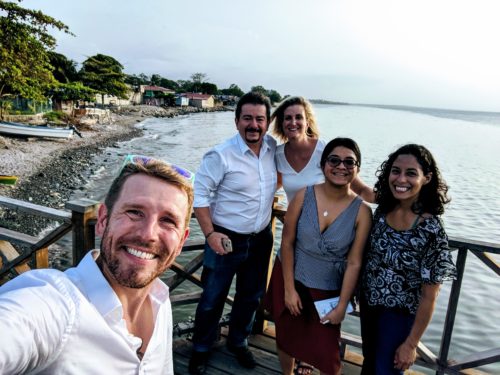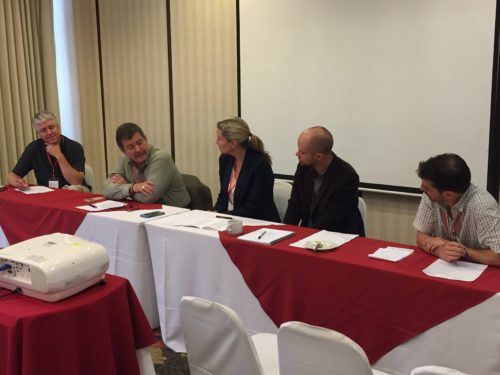Drug Trafficking and Central American Protected Areas: Focusing on Participatory Governance to Conserve Ecosystem Services and Biodiversity
What is PEGASuS?
The Program for Early-stage Grants Advancing Sustainability Science (PEGASuS) seeks increase knowledge, promote innovation, and establish evidence-based solutions to the world’s most difficult sustainability challenges. PEGASuS brings together researchers from across borders and the natural and social sciences to take creative approaches to exploring the relationships between people and the planet. Our goal is to generate self-sustaining research projects that will have real impacts on the health and wellbeing of human societies.
This is the fourth in a series of five stories on PEGASuS: Biodiversity and Natural Assets.
Drug Trafficking and Central American Protected Areas: Focusing on Participatory Governance to Conserve Ecosystem Services and Biodiversity
By Bernardo Aguilar-González, Ph.D., Fundación Neotrópica, Costa Rica; Jennifer Devine, Ph.D., Texas State University; and David Wrathall, Ph.D., Oregon State University.

Research team at La Ceiba Honduras.
Our research documents the impact caused by narco-trafficking on protected areas in Central America’s Meso-American Biological Corridor (MBC). We have placed a special focus in three biodiversity hotspots: the Maya Biosphere Reserve in Guatemala, the Honduran Mosquitia, and the Osa Conservation Area in Costa Rica. Through stakeholder interviews and field-workshops in these areas we have been able to assess the intensity of drug-trafficking and its consequences on the environment and governance inside and around these protected areas.
This work builds on the work of a larger research group we belong to known as LITCA (Landscapes in Transformation in Central America), which aimed to document the impacts of drug trafficking on Central American forests (which has been published here, here and here). The LITCA team identified new patterns of deforestation associated with the passage of cocaine through Central America. We observed new patterns of deforestation occurring at large scales, and very rapidly, as the region became a primary transit location for cocaine flows.
Our research reveals that drug trafficking organizations invest illicit profits in large-scale agriculture, cattle ranching and other frontier economic activities. Surprisingly, these new patterns of deforestation are disproportionately concentrated around the region’s protected areas, putting at risk decades of investment in conservation initiatives to protect these ecosystems, which provide valuable services to human society. In fact, our research shows preliminary estimates of economic losses indicating a yearly loss rate of amounts equivalent to approximately twice the public budget invested in protected areas by the governments of Central America.

LITCA panel-preliminary results presentation, at the Conference of Latin Americanist Geographers in May 2018, San Jose, Costa Rica.
Yet, the losses also include significant impacts in the actors and institutions that undertake the work of environmental governance that includes protecting forests, monitoring resource extraction, and enforcing conservation law. Using intimidation and violence, drug trafficking organizations undermine the ability of conservation actors and agencies to protect and manage biodiversity hotspots. An analysis of the socio-ecological conflicts related to narco-trafficking in these biodiversity hotspots shows that indigenous and rural populations are the most vulnerable, communities who are the traditional stewards of forests and frontline implementers of forest conservation.
Our project aims at compiling databases on these impacts, and documenting them in scientific journals (as already done here), which will enable deeper insight into this important problem in the years to come. An additional outcome of this research is an online observatory on the impacts of narco-trafficking on the region’s biodiversity. which we are currently developing.
DATE
May 20, 2019AUTHOR
Bernardo Aguilar-GonzálezDavid Wrathall
Jennifer Devine
SHARE WITH YOUR NETWORK
RELATED POSTS
Spotlight on LMICs – Tired of Breathing in Pollutants? Time for Better Fuel Economy and Vehicle Standards
Future Earth Taipei Holds 2024 Annual Symposium
Spotlight on LMICs – The Future’s Juggernaut: Positioning Research as Anchors for Environmental Health